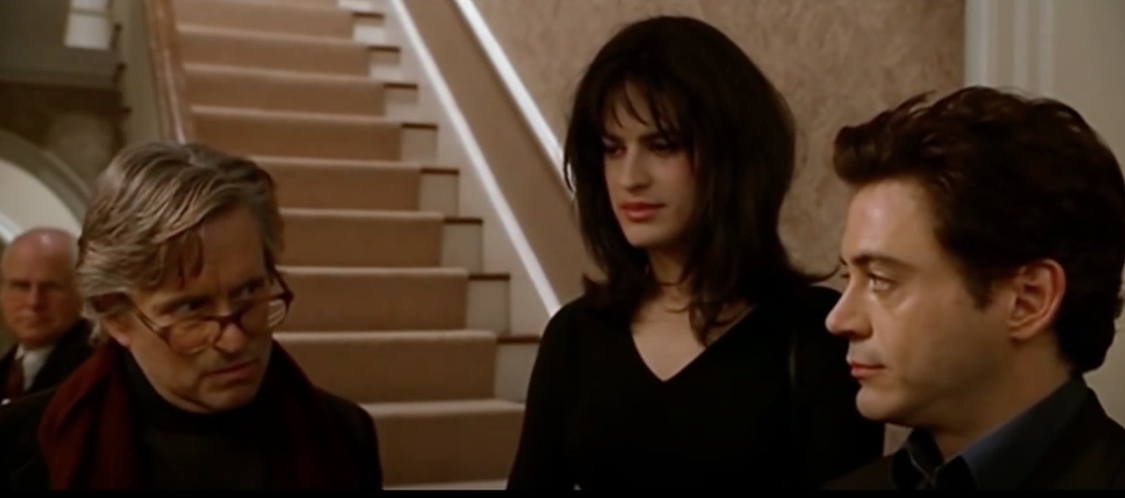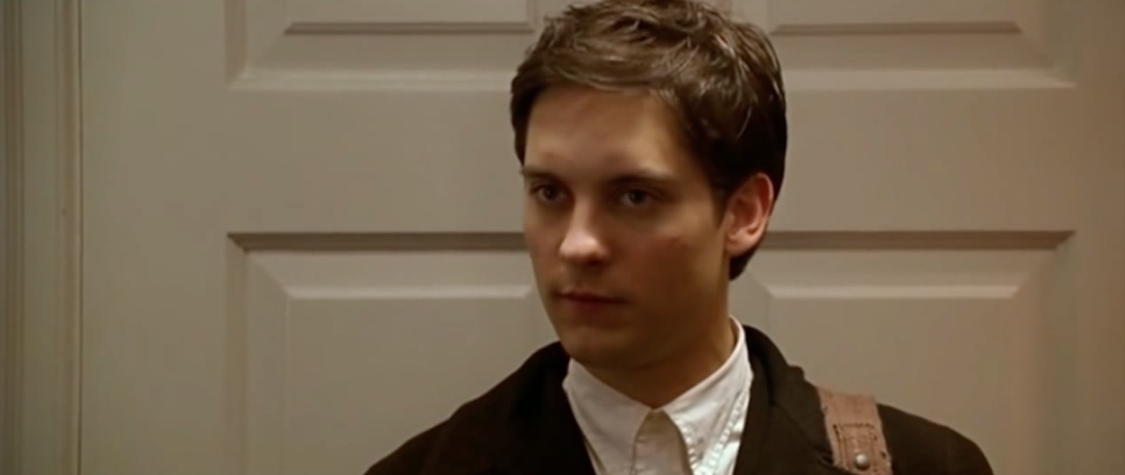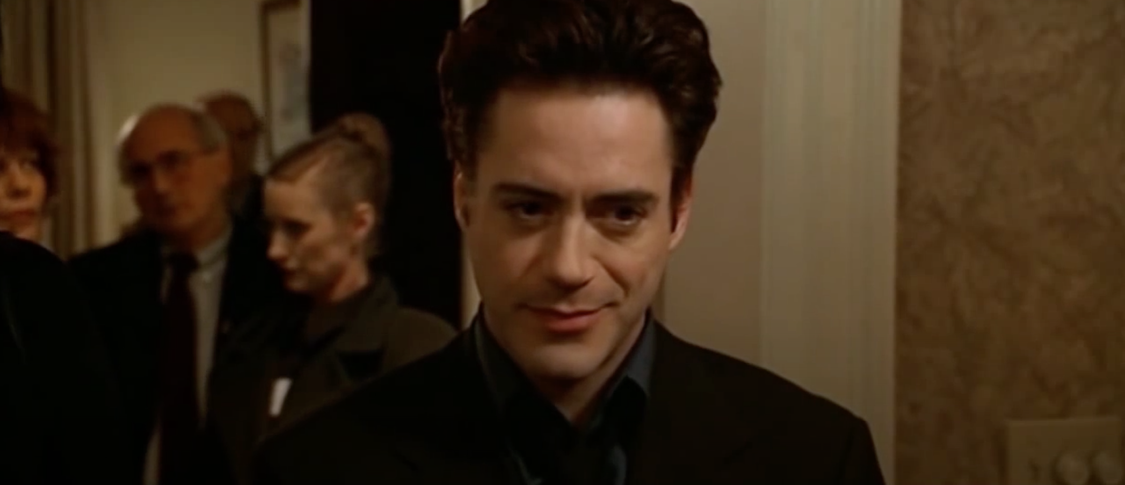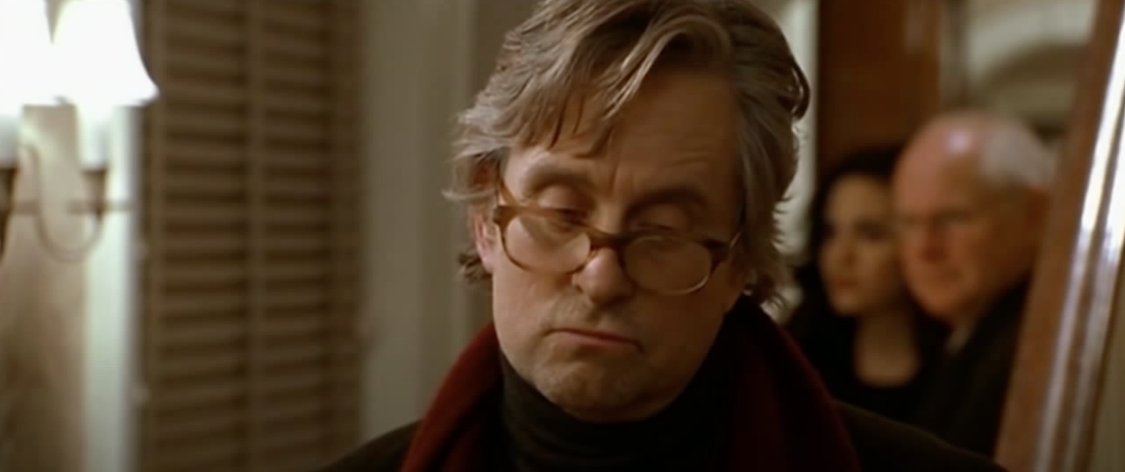
Scene: The Suicide List
Curtis Hanson’s Wonder Boys understands that writers are often their own most carefully crafted creations. You can often catch the writers in the film pausing to appreciate when they hit upon just the right turn of phrase. Life doesn’t allow for second drafts. So very satisfying to nail it on the first.
By understanding the way writers reveal themselves through the way they live their lives, Wonder Boys solves the age-old problem of making writing cinematic. We never hear a word of Grady Tripp’s prose that gets blown away at the film’s end, but after we spend two hours stumbling through the shambolic mess of his life, it feels superfluous. His life is already one long, run-on sentence crying out for an editor’s red pen...

Or take James Leer (Toby Maguire, perfectly cast), a prodigiously talented writing student of acclaimed novelist Grady Tripp (Michael Douglas, never better) at an unnamed Pittsburgh university. James lives his life like he’s trying to hook a reader with his mysterious and brooding behavior, but, like many a young writer, he’s overselling it. He spends as much time constructing the image of himself as Suffering Artist as he does cranking out fiction, and he will enthusiastically manufacture that suffering when his own life fails to provide adequate material. He is the type who would rather be discovered skulking in the shadows outside a cocktail party in the midst of an aborted suicide attempt than go through the tiresome process of mingling. It is hard to tell where James’s real emotional fragility starts and the melodramatic fabrications end.
Part of what makes Wonder Boys so rewatchable is the pleasure of spending time in the company of characters who don’t merely perform versions of themselves - because don’t we all - but who do so with real panache. Like when Katie Holmes’ fellow student prompts James to name all the Old Hollywood suicides as a party trick. Showing off his photographic memory would be stunt enough, but James makes a meal of it, lending a musicality to the rhythm of his recitation. (“Pills...pills...A LOT of pills.”) Crucially, he does it all in an off-hand manner, with no indication he believes there is anything odd or impressive about it. In a wonderful touch, James showboats by listing all the celebrities alphabetically, allowing him to reply with perfect casual faux-modesty, “I guess that’s just how my brain works” after Robert Downey Jr.'s editor Terry Crabtree points it out.

Leer’s performance finds its target with Crabtree, who immediately sees the potential in this odd young man. James’ display doesn’t prove talent necessarily, but experience has taught Crabtree to spot one of his people. There’s something about that particular combination of social awkwardness, restless intellect, and facility with language. Notice how Terry immediately falls into the role of editor, suggesting a rewrite to James’ performance of himself: When James declines an invitation to go drinking, Terry offers a stronger ending: “No one your age just wants to go home.”
The covert star of Wonder Boys is the legendary editor Dede Allen, the woman behind movies as varied as Bonnie and Clyde and The Breakfast Club. Allen maintains a crackling comedic energy throughout what could have been a languid and cerebral film. Her cutting is particularly sharp in group scenes where she is attuned to how tension can ripple and ricochet off cross purposes. The suicide list is a showcase for James Leer, but the scene is as much about the tug-of-war between Grady and Terry, Grady trying to protect this vulnerable kid and Terry fascinated by his shiny new find. There is a cut I love when James pauses on Everett Sloane to editorialize “He was good” and we get a quick shot of Grady giving a resigned nod. With that cut Allen connects the scene to an additional thematic level as we realize all these examples of youthful glory ending in disappointment are hitting Grady’s square in his own middle-aged failures.

Grady probably believes he’s left behind the kind of verbal peacocking James displays but what he misses through the pot haze is that he hasn’t outgrown his affectations, they have merely settled into an aimless middle-aged routine. The string of women. The bathrobe. The unfinished book ballooning to elephantine proportions. He is still very much one of the “boys” of the film’s title and the look is getting much shabbier and unappealing absent the bloom of youth. Grady has a fair amount of good advice to impart to James over their time together but he’s going to teach as much by example, even if he does so inadvertently.

Follow Michael on Twitter and Letterboxd. More episodes of The New Classics.